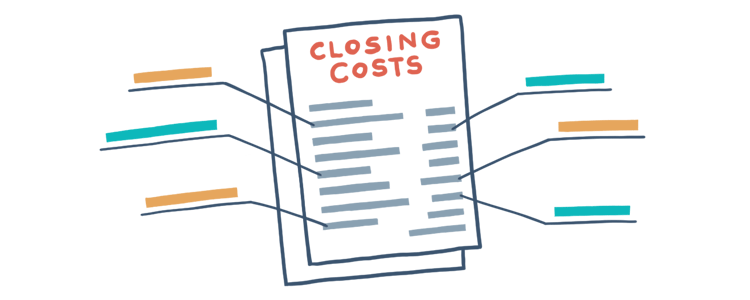Closing Costs for FHA Loans

Closing costs encompass all the fees and charges owed at the closing of a mortgage. The FHA outlines "allowable" closing costs that may be reasonably charged to the borrower. The non-allowable costs are paid by either the seller or lender. Some closing costs are charged by the mortgage lenders, and others come from third parties such as home appraisers and title companies.
Closing Costs You Can Expect
The usual closing costs include appraisal fees, inspection fees, cost of credit reports, lender's origination fees, deposit verification fees, home inspection fees, cost of title examination and title insurance, document preparation charges, property surveys, attorney's fees, recording fees, and the cost of transfer stamps and taxes, to name a few.
According to the Federal Reserve, FHA closing costs typically amount to an average of 3% of the property’s purchase price, but this number can change based on location, as some states charge higher taxes. Depending on where you choose to buy a home, your closing costs can amount to as much as 6% of the purchase price.
In addition to location, a borrower’s choices can affect the amount they pay at closing. For instance, a borrower may choose to pay discount points to lower their interest rate. But this also means they increase their overall closing costs. This decision is ultimately made according to what the borrower can afford. Some find it easier to make higher upfront payments and lower the overall interest they pay on the loan. Others have less disposable income and choose to keep their closing costs low by foregoing the discount points and lower interest rate.
Loan Estimate and Closing Disclosure
It’s difficult to come up with an average number for FHA closing costs. That’s why the Consumer Financial Protection Bureau (CFPB) implemented the "Know Before You Owe" mortgage disclosure rule. It mandates that all lenders give borrowers a Loan Estimate of their FHA closing costs shortly after they apply for a loan. This document goes over the ins and outs of the mortgage terms, allowing borrowers to easily compare the mortgage costs with that of the competition. Lenders are then required to give borrowers the Closing Disclosure three days before closing. This is an updated document that shows what your actual costs will be.

FHA Loan Articles
September 13, 2023FHA rehab loans are a specialized type of mortgage loan offered by the Federal Housing Administration that allows borrowers to finance both the purchase or refinance of a home and the cost of needed repairs.
September 8, 2023Borrowers considering an FHA loan should be familiar with some basic loan terminology. These loans are popular among first-time homebuyers and those with lower credit scores because they often offer more flexible eligibility requirements and lower down payment options.
September 2, 2023You may have heard the terms co-borrower and cosigner in connection with your FHA loan process, but aren't sure about the distinction. Both a co-borrower and a cosigner can help a primary borrower qualify for a mortgage, but they have different roles and responsibilities.
August 27, 2023The Federal Housing Administration has specific credit requirements and guidelines for borrowers looking to buy or refinance homes with an FHA loan. In addition to what FHA guidelines state, lenders may have more stringent requirements that may vary from one lender to another.
August 23, 2023Mortgage APR (Annual Percentage Rate) and a loan's interest rate are two different things, although they are closely related. Understanding the difference is an important part of a borrower's analysis of the true cost of their mortgage.
August 19, 2023FHA refinance loans allow homeowners with existing FHA loans to refinance their mortgages. These loans are designed to help borrowers take advantage of lower interest rates, reduce their monthly mortgage payments, or access equity in their homes for various purposes.








